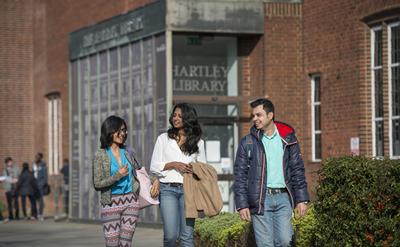IfLS plays key role in development of new masters degree programme

Southampton’s Institute for Life Sciences (IfLS), in collaboration with Engineering and the Environment, has been instrumental in the development of a new engineering degree that is being launched at the University later this year.
The MSc in Biomedical Engineering will welcome its first students through the doors in October to study at the interface of engineering, biology and medicine.
The new programme will see students combining engineering expertise with an understanding of human biology and medical needs to help solve problems and provide effective solutions of the medical and healthcare challenges facing society.
They will gain the essential skills required to succeed in an interdisciplinary environment, working with teams of clinicians, scientists, engineers, business people and support staff to monitor, restore and enhance normal body function, abilities and outcomes.
Dr Sumeet Mahajan, Associate Professor in Life Science Interface at the IfLS, said: “This is the first time the IfLS has been involved in helping to develop a programme of study.
“We wanted to enhance physical scientists’ and engineers’ understanding of real biomedical and clinical issues and support them to work with clinicians and health scientists to devise and deliver effective clinical solutions to disease.
“Staff associated with the IfLS have developed several new modules for the programme. This new degree serves as an exemplar of cross-faculty teaching with the programme being run by academic staff from across many areas of the University.”
Professor Neil W Bressloff, who represents Engineering and the Environment within the IfLS, said: “I am delighted at the launch of this new programme, particularly in light of the significant support from the IfLS and notable contributions from other faculties.” The one-year, full-time MSc programme team also includes Professor Markus Heller and Professor David Simpson.
There is an interdisciplinary research project at the end of the course that gives students the opportunity to further integrate their engineering skills with an understanding of the complexity of biological systems by working at the exciting intersection of science, medicine and mathematics.
Sumeet added: “Our new programme will provide students with an academically challenging exposure to current state-of-the-art biomedical engineering. They will be equipped with the necessary skills to take on leading roles in developing novel engineering solutions that allow healthcare practitioners and providers - such as clinicians, clinical support services and carers - to improve or maintain health and well-being by creating better preventive, diagnostic, prognostic, restorative, rehabilitative and palliative measures.”
Professor Peter J S Smith, Director of the IfLS, said: “At the IfLS we aim to produce a new generation of researchers, teachers and policy makers, conversant with a broad range of disciplines and will use the experience of developing this programme as a template for catalysing similar education and training collaborations. There are already several activities where we believe the IfLS can contribute by bringing in the expertise of its members.”
University of Southampton Pro Vice-Chancellor Research and Enterprise Professor Tim Elliott welcomed the new programme. He said: “The introduction of this new MSc shows how the IfLS adds true value to both research and education. By working together, our academics from across the University, are driving up the quality and sustainability of the courses we can provide to our students.”
To find out more about the MSc Biomedical Engineering programme visit https://www.southampton.ac.uk/engineering/postgraduate/taught_courses/engineering/msc-biomedical-engineering.page